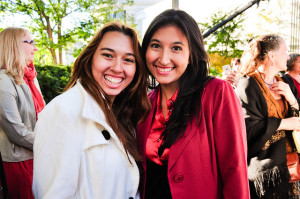 I spend a lot of time wondering how we as a religious community are contributing to the marginalization of people within our faith. Who are we not seeing? Who are we forgetting? Are we paying lip service to inclusion while excluding people in our day-to-day actions and language? Even though we have good intentions and make strides towards adapting our behavior, how deep is our commitment?
I spend a lot of time wondering how we as a religious community are contributing to the marginalization of people within our faith. Who are we not seeing? Who are we forgetting? Are we paying lip service to inclusion while excluding people in our day-to-day actions and language? Even though we have good intentions and make strides towards adapting our behavior, how deep is our commitment?
These questions have made me examine some of my interactions at church a little more closely. In the last few months, I have been increasingly bothered by the use of ‘Brother’ and ‘Sister’. Most of the time, when we address one another, we use gender labels as titles, which is also true in American secular culture. However, the use of brother and sister in reference to one another does not usually wane with familiarity. Whereas, in secular society, the person being addressed can suggest something less formal, in our church community, the use of these titles does not always disappear as we become more familiar with one another. The reliance on family relationships as titles to show our love and intimacy to one another is understandable when trying to build community, but we are still excluding people by using language that relies on this binary.
By using Brother and Sister, we reinforce in our interactions the misguided belief that there are only two genders. We silence and ignore anyone who does not ascribe to this binary by not using inclusive language that shows that we value all individuals.This is especially disconcerting since we have a more inclusive word that is familial. ‘Sibling’ includes all people and does not connote gender. I suggest we consider using Sibling to lovingly address one another and widen our family circle to include those who were previously forgotten.
The switch to ‘Sibling’ may seem difficult or awkward at first, but it is an important and concrete action we can take to manifest our internal commitment to inclusion within the Gospel. 1 John 3:18 says “My little children, let us not love in word, neither in tongue; but in deed and in truth. “ By making a greater effort to change our behavior and language, we create more room for love, diversity, and people within our faith community.
Your Sibling in Christ,
Natasha





